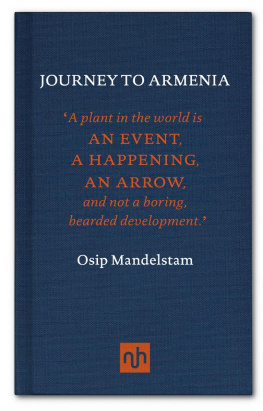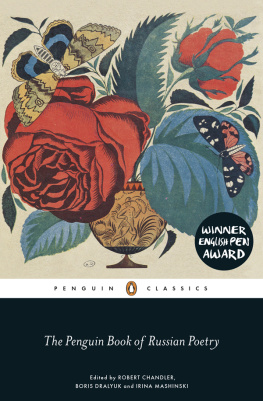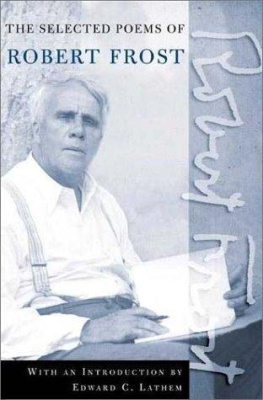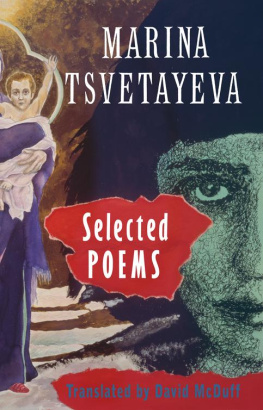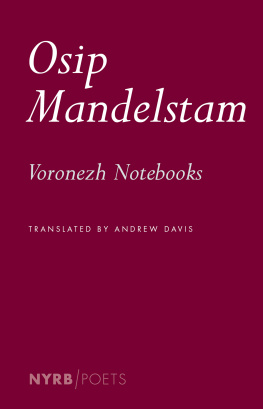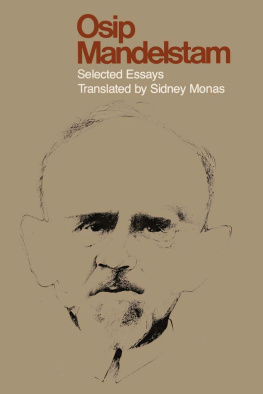Graeme Davis - Eleven Poems of Osip Mandelstam
Here you can read online Graeme Davis - Eleven Poems of Osip Mandelstam full text of the book (entire story) in english for free. Download pdf and epub, get meaning, cover and reviews about this ebook. year: 2013, genre: Detective and thriller. Description of the work, (preface) as well as reviews are available. Best literature library LitArk.com created for fans of good reading and offers a wide selection of genres:
Romance novel
Science fiction
Adventure
Detective
Science
History
Home and family
Prose
Art
Politics
Computer
Non-fiction
Religion
Business
Children
Humor
Choose a favorite category and find really read worthwhile books. Enjoy immersion in the world of imagination, feel the emotions of the characters or learn something new for yourself, make an fascinating discovery.

- Book:Eleven Poems of Osip Mandelstam
- Author:
- Genre:
- Year:2013
- Rating:3 / 5
- Favourites:Add to favourites
- Your mark:
- 60
- 1
- 2
- 3
- 4
- 5
Eleven Poems of Osip Mandelstam: summary, description and annotation
We offer to read an annotation, description, summary or preface (depends on what the author of the book "Eleven Poems of Osip Mandelstam" wrote himself). If you haven't found the necessary information about the book — write in the comments, we will try to find it.
Stone - On pale blue enamel
A body has been given to me
More sluggish is the snowy beehive
I hate the light
Notre Dame
Stanzas about St Petersburg
I did not hear the tales of Ossian
I am cold
In Petropolis
Take for your joy
Hagia Sophia
Eleven Poems of Osip Mandelstam — read online for free the complete book (whole text) full work
Below is the text of the book, divided by pages. System saving the place of the last page read, allows you to conveniently read the book "Eleven Poems of Osip Mandelstam" online for free, without having to search again every time where you left off. Put a bookmark, and you can go to the page where you finished reading at any time.
Font size:
Interval:
Bookmark:
Eleven Poems of Osip Mandelstam translated by Graeme Davis Part three in the series Selected Poems of the Russian Symbolists: Bryusov, Akhmatova and Mandelstam
Contents
Introduction A body has been given to me
Their inspiration was Russian Symbolism, though The Poets Guild developed a particular response to the Russian Symbolism which they called acme, referencing the Greek word for the best and defining qualities. The manifesto of the Acmeists, The Morning of Acmeism (1913) was written by Mandelstam. The Russian Revolution provoked different responses from Russias intelligentsia. Many emigrated. Some supported the Soviet regime, notably Bryusov; some muted their criticism, even Anna Akhmatova, Mandelstams close friend and fellow acmeist. Mandelstam however was outspoken, and having seen the effects of the Great Famine directly criticised Stalin in the Stalin Epigram (1933).
Though merely read at small and private gatherings, this was enough to condemn Mandelstam to internal exile in the northern Urals perhaps Stalin objected to being described as the Kremlin highlander. Mandelstam was reprieved, but in the Great Purge of 1937 was charged with counter-revolutionary activities. He was sent to the Gulag to serve a five-year sentence, and died months later in a transit camp near Vladivostok. Mandelstams star has risen after his death. His reputation was partially rehabilitated during the Khrushchchev thaw; fully rehabilitated under Gorbachev. He even has an asteroid named in his honour (3461 Mandelshtam).
Translating Mandelstam is challenging, though English translations of most of his work now exists. Reading him can equally be a challenge. Few today have at their finger-tips the classical allusions he makes; few have familiarity even with the culture and locales of Russia of up to a century ago. Notwithstanding, he repays our effort. Mandelstam speaks perhaps of life as the fluttering of the blue-eyed dragonflies, Briefly living.
Stone - On pale blue enamel
Stone - On pale blue enamel
Into a sharpened and fine pattern They settle, as a fine network, Like the join on a porcelain plate Marked out incisively, As when the benign artist Traces them out on the glass foundation, In the awareness of his momentary power, In forgetfulness of his sad death.
A body has been given to me
More sluggish is the snowy beehive
This fabric, intoxicated with itself, Pampered by a caress of the light, Experiences summer And is as if untouched by the winter. And if in the icy diamonds There streams the ice of eternity, Here is the fluttering of the blue-eyed dragonflies, Briefly living.
I hate the light
Notre Dame
But, outside, a secret plan betrays itself! Here the power of supporting arches has shown concern; So that the weighty mass of the wall should not crush It is deadlocked by the intrepid arch. An elemental labyrinth and an unfathomable forest, The rational abyss of the Gothic soul. Egyptian might and Christian meekness; the reed And the oak stand side by side. Everywhere the plumb line rules. But, the more intently, O fortress of Notre Dame I study your monstrous ribs, Then the more often it occurs to me: out of unkind weightiness I should create some day something beautiful.
Stanzas about St Petersburg
And a lawyer again sits down in a sledge Wrapping himself in a coat in an expansive gesture. Steamer s have stopped for the winter. Bright in the sun The cabin s thick glass windows flared up, Monstrous, like a battleship in dock, Russia breathes heavily. And above the Neva are half the worlds embassies, The Admiralty, the sun, the silence, And the cruel purpose of the state Is like a hair-shirt, coarse and poor. The heavy burden of the northern snob The ancient burden of Onegin; On Senate Square is the bank of a snow-drift, The smoke of a fire and the chill of a bayonet Skiffs scooped the water, and gulls From the sea visited the hemp store Where, selling sbiten or rolls Only poor men wander. A line of cars flies past in the mist.
Eccentric Yevgenny, a proud, humble pedestrian, Is ashamed of poverty, Inhales petrol fumes and greets fate.
I did not hear the tales of Ossian
And perhaps not a single treasure Omitting grandchildren goes to great-grandchildren. And again Skald will compose a new song And sing it as his own.
I am cold
The golden needle-points of stars twinkle there, But none of these elements can triumph over The sucking, emerald-green water of the sea.
Font size:
Interval:
Bookmark:
Similar books «Eleven Poems of Osip Mandelstam»
Look at similar books to Eleven Poems of Osip Mandelstam. We have selected literature similar in name and meaning in the hope of providing readers with more options to find new, interesting, not yet read works.
Discussion, reviews of the book Eleven Poems of Osip Mandelstam and just readers' own opinions. Leave your comments, write what you think about the work, its meaning or the main characters. Specify what exactly you liked and what you didn't like, and why you think so.





